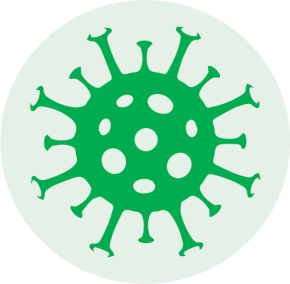

EDCTP portfolio: Emerging diseases
index


The ANTICOV project is putting in place mechanisms to enable the rapid launch of international multicentre trials of COVID-19 therapeutics in sub-Saharan Africa.
Developing a platform for COVID-19 drug trials in Africa

COVID-19 is a new disease, and there is an urgent need to develop new drugs to treat it. Despite the urgency of the situation, it is essential that potential new treatments are rigorously evaluated through clinical trials to ensure that they are safe and efficacious.
Numerous clinical trials of drugs for COVID-19 have been launched, mostly evaluating existing treatments developed for other uses. However, only a small proportion of these trials are being carried out in sub-Saharan Africa.
The challenge

The ANTICOV project is establishing a platform that will enable trials of COVID-19 therapeutics to be rapidly launched in an African setting. Sub-Saharan Africa countries have limited critical care capacity for the most seriously ill, so the project is concentrating on mild disease, with the objective of preventing the numbers progressing to severe illness and overwhelming underdeveloped health systems.
The project is aiming for flexibility, so that the most promising interventions can be evaluated, by comparison with paracetamol. The focus would be on treatments that would be feasible to use in resource-restricted settings, with an adaptive trial design that would allow new treatment arms to be added and modifications made according to local country contexts. The platform will also provide an opportunity to address other important questions, including factors associated with progression to severe illness and treatment strategies for specific groups (such as those with HIV and/or TB infections, pregnant women).
Preparatory activities include development of a template clinical trial protocol and discussions with country regulatory and ethics review authorities to ensure rapid review, drawing on the coordinating role played by the African Vaccine Regulatory Forum (AVAREF). EDCTP funding is supporting the development of a data management system to facilitate efficient data collation and dissemination. Initial trial sites are being chosen and prepared in the Democratic Republic of the Congo and Kenya.
Members of the ANTICOV consortium are all members of the global COVID-19 Clinical Research Coalition, which has more than 150 members from 40 countries, ensuring that its activities will be informed by the latest evidence on COVID-19 and coordinated with other global efforts.
The project

The ANTICOV project is establishing a platform for clinical trials of COVID-19 therapeutics in sub-Saharan Africa, complementing the work being carried out by WHO (e.g. the SOLIDARITY trial) and by other global and national bodies. It will be able to support the rapid initiation of studies to generate evidence on interventions with the potential to reduce the numbers of severely ill COVID-19 patients, easing demands on limited specialist healthcare facilities in sub-Saharan Africa.
Impact


“
test the safety and efficacy of this new formulation in young children
”
Bringing antiretroviral drugs to children

The CHAPAS trials have ensured that many more children with HIV have benefited
from life-saving antiretrovirals.
EDCTP portfolio: HIV & HIV-associated infections
The challenge
COVID-19 is a new disease, and there is an urgent need to develop new drugs to treat it. Despite the urgency of the situation, it is essential that potential new treatments are rigorously evaluated through clinical trials to ensure that they are safe and efficacious.
Numerous clinical trials of drugs for COVID-19 have been launched, mostly evaluating existing treatments developed for other uses. However, only a small proportion of these trials are being carried out in sub-Saharan Africa.

The ANTICOV project is establishing a platform that will enable trials of COVID-19 therapeutics to be rapidly launched in an African setting. Sub-Saharan Africa countries have limited critical care capacity for the most seriously ill, so the project is concentrating on mild disease, with the objective of preventing the numbers progressing to severe illness and overwhelming underdeveloped health systems.
The project is aiming for flexibility, so that the most promising interventions can be evaluated, by comparison with paracetamol. The focus would be on treatments that would be feasible to use in resource-restricted settings, with an adaptive trial design that would allow new treatment arms to be added and modifications made according to local country contexts. The platform will also provide an opportunity to address other important questions, including factors associated with progression to severe illness and treatment strategies for specific groups (such as those with HIV and/or TB infections, pregnant women).
Preparatory activities include development of a template clinical trial protocol and discussions with country regulatory and ethics review authorities to ensure rapid review, drawing on the coordinating role played by the African Vaccine Regulatory Forum (AVAREF). EDCTP funding is supporting the development of a data management system to facilitate efficient data collation and dissemination. Initial trial sites are being chosen and prepared in the Democratic Republic of the Congo and Kenya.
Members of the ANTICOV consortium are all members of the global COVID-19 Clinical Research Coalition, which has more than 150 members from 40 countries, ensuring that its activities will be informed by the latest evidence on COVID-19 and coordinated with other global efforts.
The project
The later CHAPAS-3 trial compared the efficacy and safety of three fixed-dose combinations including two without stavudine (found to have some long-term side effects in adults, leading to a recommendation that its use be discontinued in children). The trial the first of its kind in Africa studied nearly 500 children at four sites in two African countries.
The ANTICOV project is establishing a platform for clinical trials of COVID-19 therapeutics in sub-Saharan Africa, complementing the work being carried out by WHO (e.g. the SOLIDARITY trial) and by other global and national bodies. It will be able to support the rapid initiation of studies to generate evidence on interventions with the potential to reduce the numbers of severely ill COVID-19 patients, easing demands on limited specialist healthcare facilities in sub-Saharan Africa.
ratios forfixed-dose combinations and on appropriatedosage according to weight.
The CHAPAS-3 trial confirmed the effectiveness of fixed-dose combinations, providing further impetus to the rollout of antiretrovirals to children. Its evidence on abacavir informed the WHO recommendation of abacavir-containing combinations for first-line therapy in children. Trial data have also been used to support applications for regulatory approval for new scored efavirenz tablets.
Impact
L’homme RF et al. Nevirapine, stavudine and lamivudine pharmacokinetics in African children on paediatric fixed-dose combination tablets. AIDS. 2008;22(5):557–65.
Mulenga V et al. Abacavir, zidovudine, or stavudine as paediatric tablets for African HIVinfected children (CHAPAS-3): an open-label, parallel-group, randomised controlled trial. Lancet Infect Dis. 2016;16(2):169–79.
WHO. Guidelines on the use of antiretroviral drugs for treating and preventing HIV infection: recommendations for a public health approach. 2010.
WHO. Consolidated guidelines on the use of antiretroviral drugs
for treating and preventing
HIV infection: Recommendations for a public health approach
(second edition). 2016
Projects: Children with HIV in Africa Pharmacokinetics and Adherence of Simple Antiretroviral Regimens (CHAPAS): CHAPAS-1 and -3
Project lead: Professor Chifumbe Chintu, University Teaching Hospital, Zambia (CHAPAS-1); Dr Veronica Mulenga, University Teaching Hospital, Zambia (CHAPAS-3)
Target population(s): Children with HIV
Sample size: 71 (CHAPAS-1); 480 (CHAPAS-3)
Countries involved: Ireland, the Netherlands, the UK, the USA, Zambia (CHAPAS-1); Uganda, Zambia (CHAPAS-3)
Project duration: 2005–2009 (CHAPAS-1); 2010 –2011 (CHAPAS-3)
EDCTP funding: €1.2M (CHAPAS-1); €4.6M (CHAPAS-3)
Total project funding: €1.2M (CHAPAS-1); €5.0M